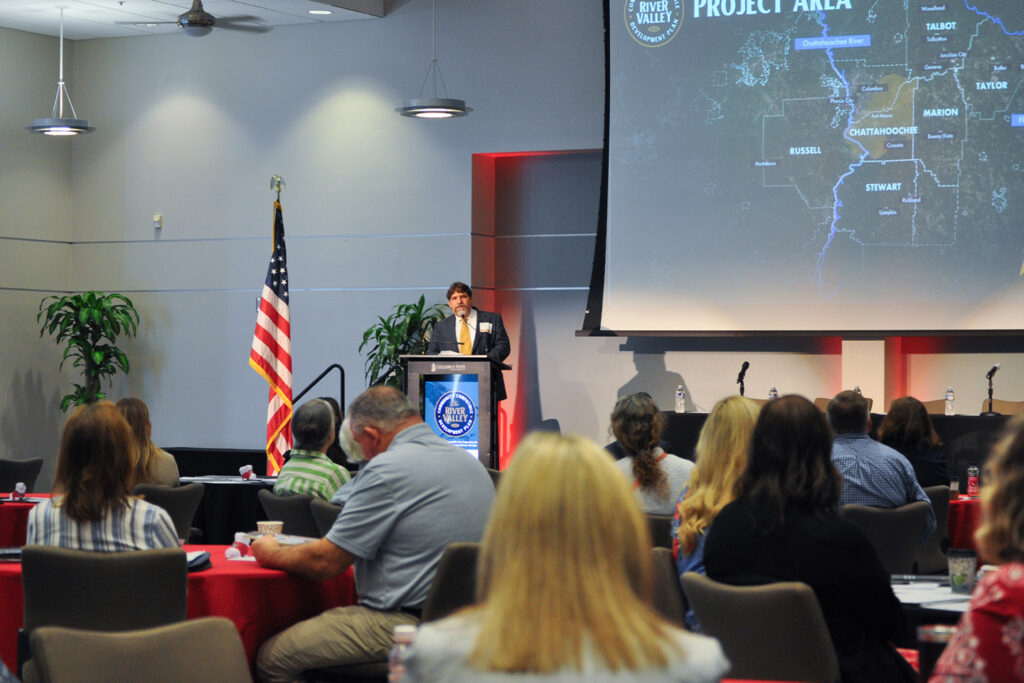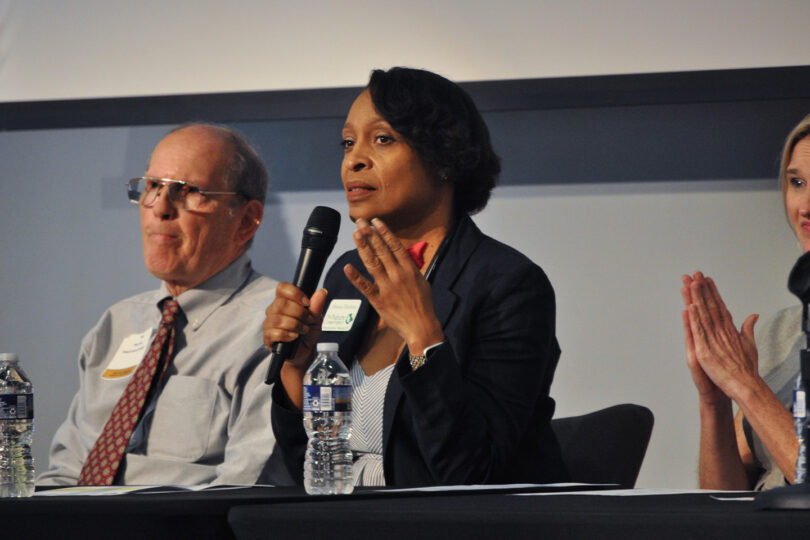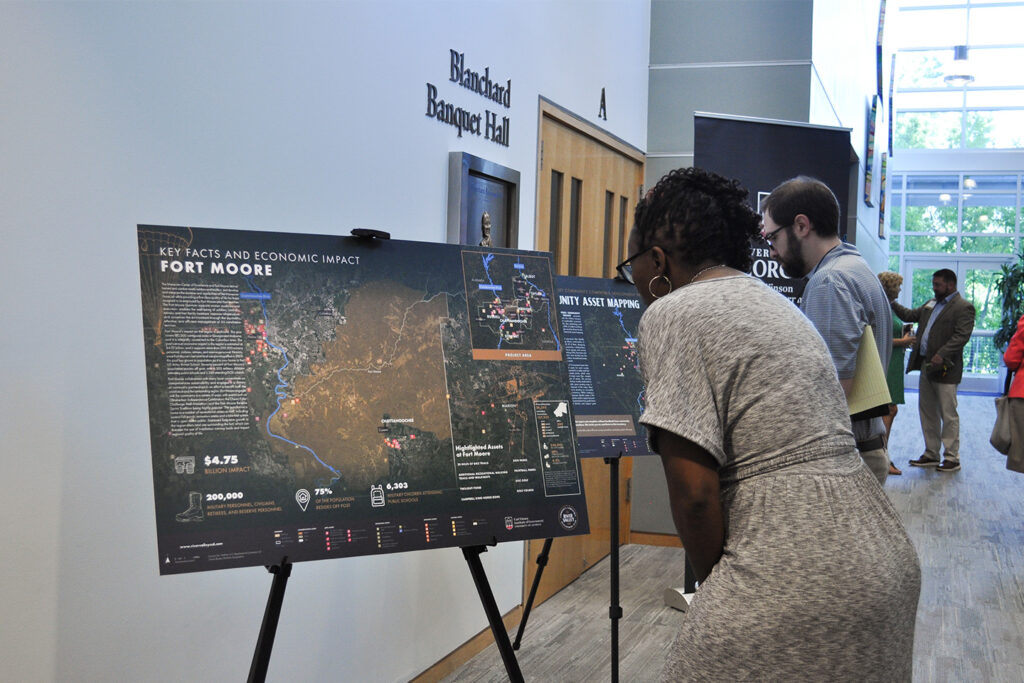The University of Georgia has rolled out a visionary plan to spur economic development in communities surrounding Fort Moore, providing strategic direction aligned with the military mission that protects the rural character of the area and supports quality of life.
The River Valley Community Compatible Development (RVCCD) Plan provides a roadmap for creating vibrant downtowns, investing in infrastructure and promoting outdoor activities in the rural communities where certain kinds of land development might impede the military mission of Fort Moore, the U.S. Army installation formerly known as Fort Benning.

Jim Livingston, executive director of the River Valley Regional Commission, presents the RVCCD plan to a group of community and military leaders in Columbus. (Submitted photo)
The project results from more than two years of community engagement and planning led by the UGA Institute of Government in partnership with the River Valley Regional Commission, the Fort Moore Maneuver Center of Excellence, and its Army Compatible Use Buffer (ACUB) partners, including The Nature Conservancy, Georgia Chapter; the Georgia Department of Natural Resources; Georgia Forestry Commission; U.S. Fish and Wildlife Service; and USDA Natural Resources and Conservation Service.
The work encompasses six rural counties surrounding the installation: Marion, Chattahoochee, Stewart, Taylor, Talbot and Russell, Alabama.
UGA representatives, military personnel and community members gathered in Columbus on Aug. 18 to learn about the plan and to strategize on next steps.
“We are excited to facilitate this collaborative effort and to bring community and military partners together for such impactful work,” said Jennifer Frum, vice president for UGA Public Service and Outreach. “This project exemplifies what the University of Georgia is designed to do through its land-grant mission of service to the people of the state.”
Funded by the U.S. Department of Defense, the project also reflects the military’s commitment to strengthen communities that share borders with its installations.
“Promoting economic development within the Chattahoochee Valley area communities is vitally important to the Fort Moore and Maneuver Center of Excellence mission,” said Brandon Cockrell, deputy to the Garrison Commander. “Collectively putting our resources into the future of this community is also investing in the future of Fort Moore.”
The plan is notable for its regional approach. UGA research indicates that the rural counties surrounding Columbus have strong potential to tap into a vibrant regional tourism economy by showcasing their natural and cultural resources. The plan recommends infrastructure improvements such as water and sewer upgrades to attract and sustain such efforts.
“It’s a blueprint for going beyond just conservation and supporting economic and community development for long-term prosperity and success in these rural areas,” said Scott Pippin, UGA Institute of Government faculty and project leader.
Modeled on a proven formula for community engagement and rural development designed by the UGA Institute of Government, the project involved working with partners to create small groups of area leaders to help engage communities and identify shared needs, issues, assets and opportunities.
For citizens in Stewart County, the process has helped stimulate revitalization of downtown Lumpkin. The RVCCD team worked with the city and county to develop downtown designs that will be implemented thanks to a $2 million grant from the governor’s office.
Today, tourism and outdoor recreation drive more of the county’s economy. The hope is that planned changes to downtown Lumpkin will attract hunters and visitors from nearby natural resources such as Providence Canyon.
“We have a lot of cultural assets, but improving streetscapes will be critical to slowing down logging trucks and making downtown more attractive,” said Mac Moye, manager of Stewart County.
The RVCCD plan is a welcome resource for the River Valley Regional Commission, the federally designated economic development district focused on creating, promoting and fostering growth and economic prosperity in 16 counties.
“Our UGA partners were thoughtful, understanding and pragmatic during this process,” said Jim Livingston, executive director of the River Valley Regional Commission. “The strength of the effort now depends on engaging and supporting local jurisdictions for long-term success.”
UGA Institute of Government faculty and staff will continue to engage with the communities on capacity building, resource identification and technical support.
“This innovative project is just the beginning of our work in this area,” said Rob Gordon, director of the UGA Institute of Government. “We look forward to continuing to work with this region and communities and military installations across Georgia to inspire new partnerships and drive long-term economic success.”









